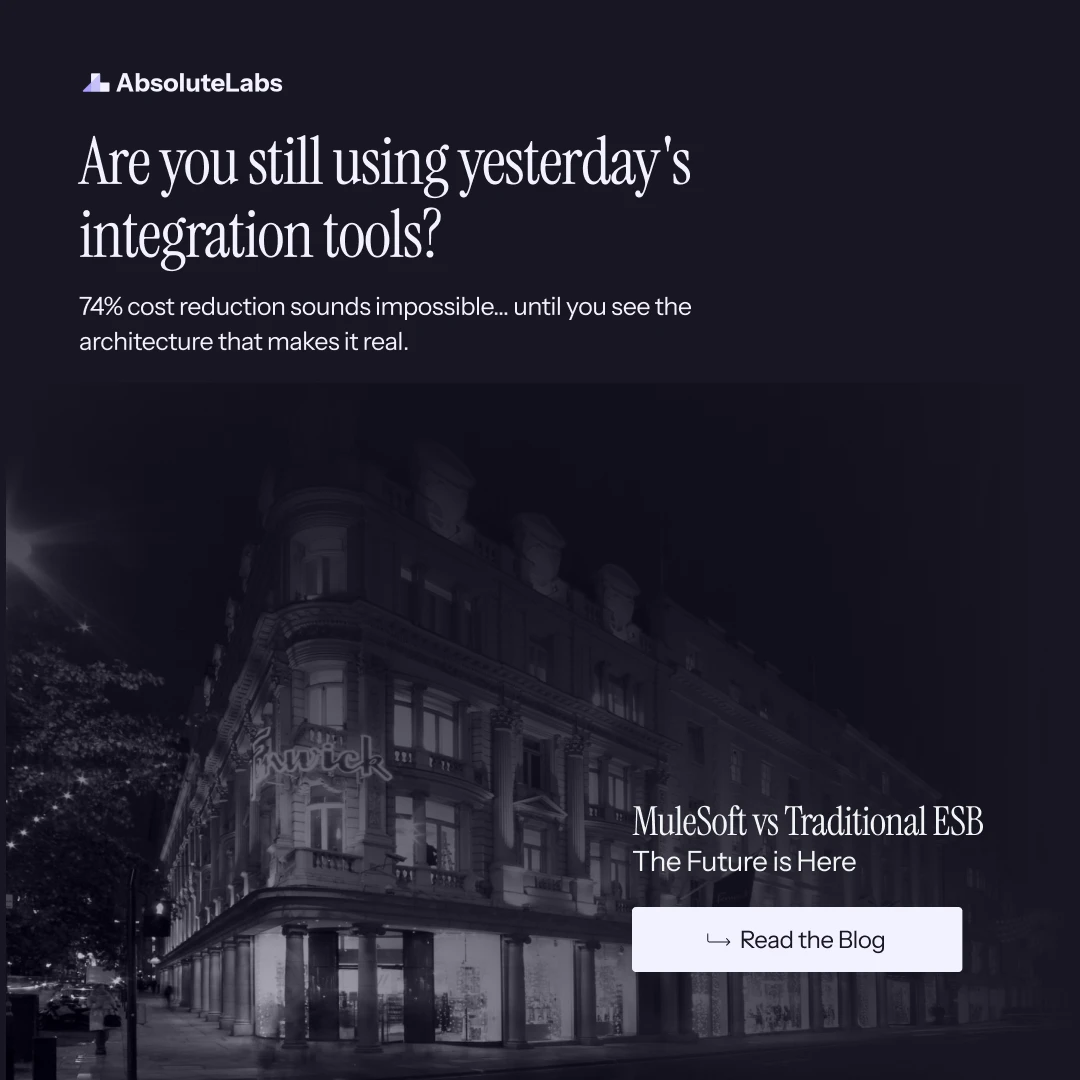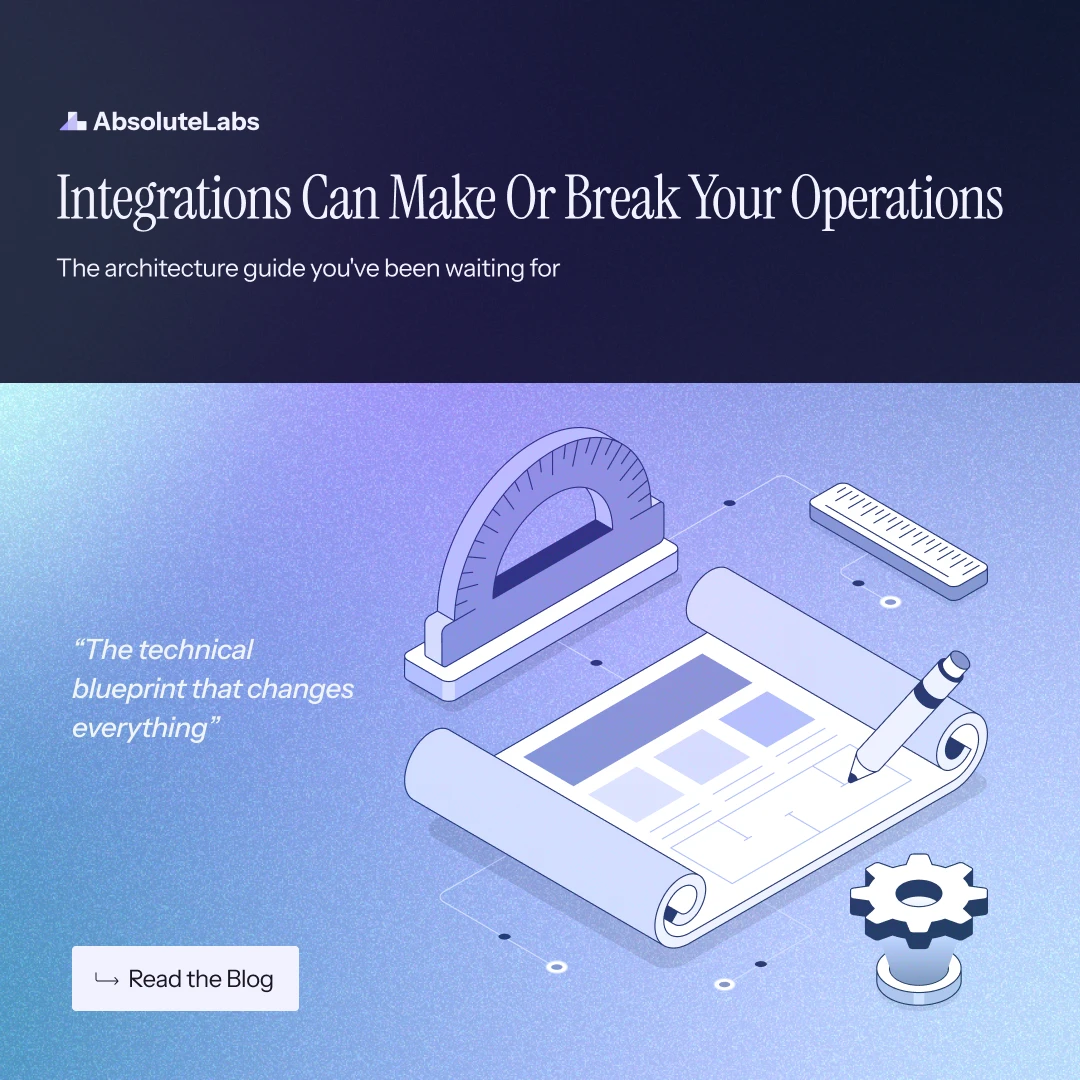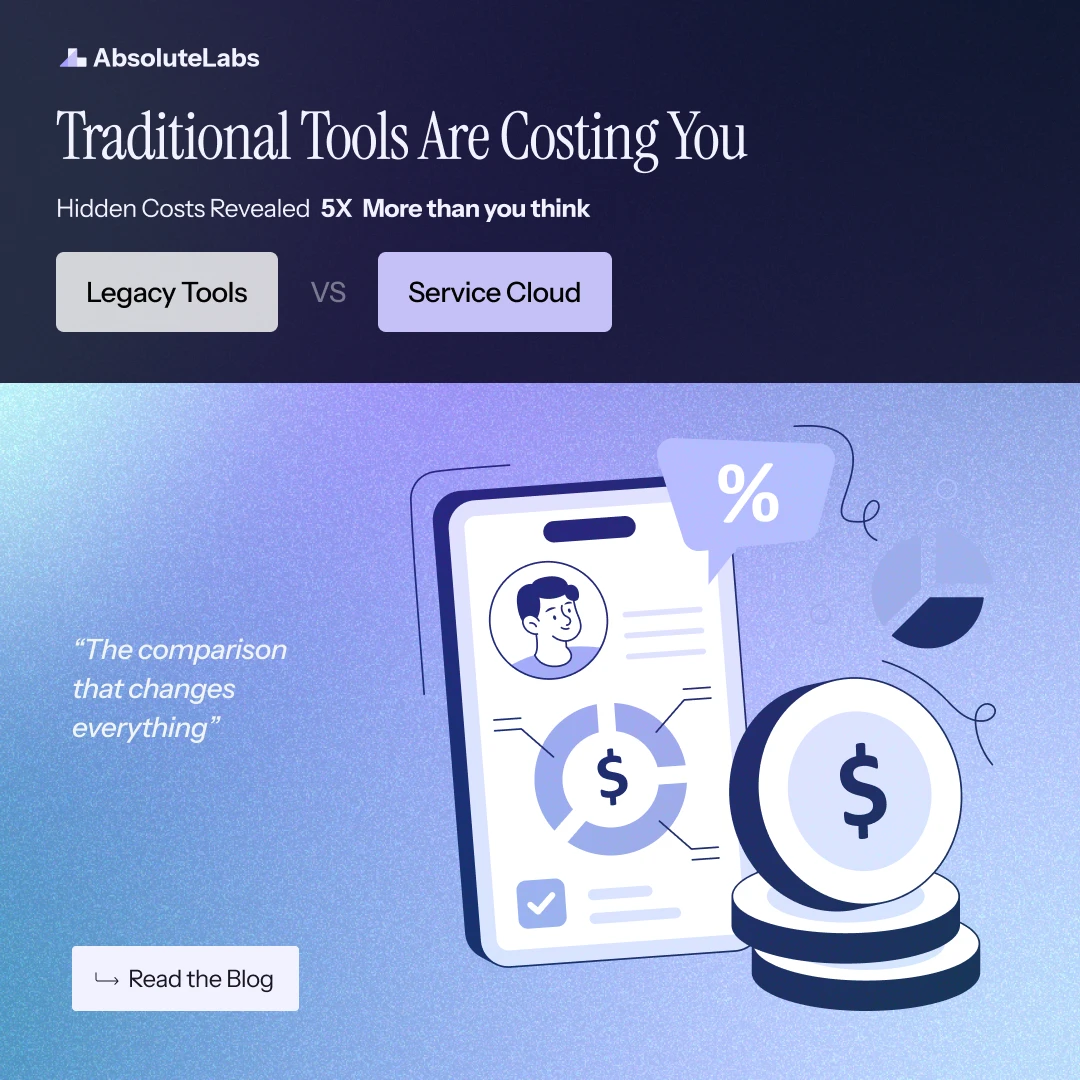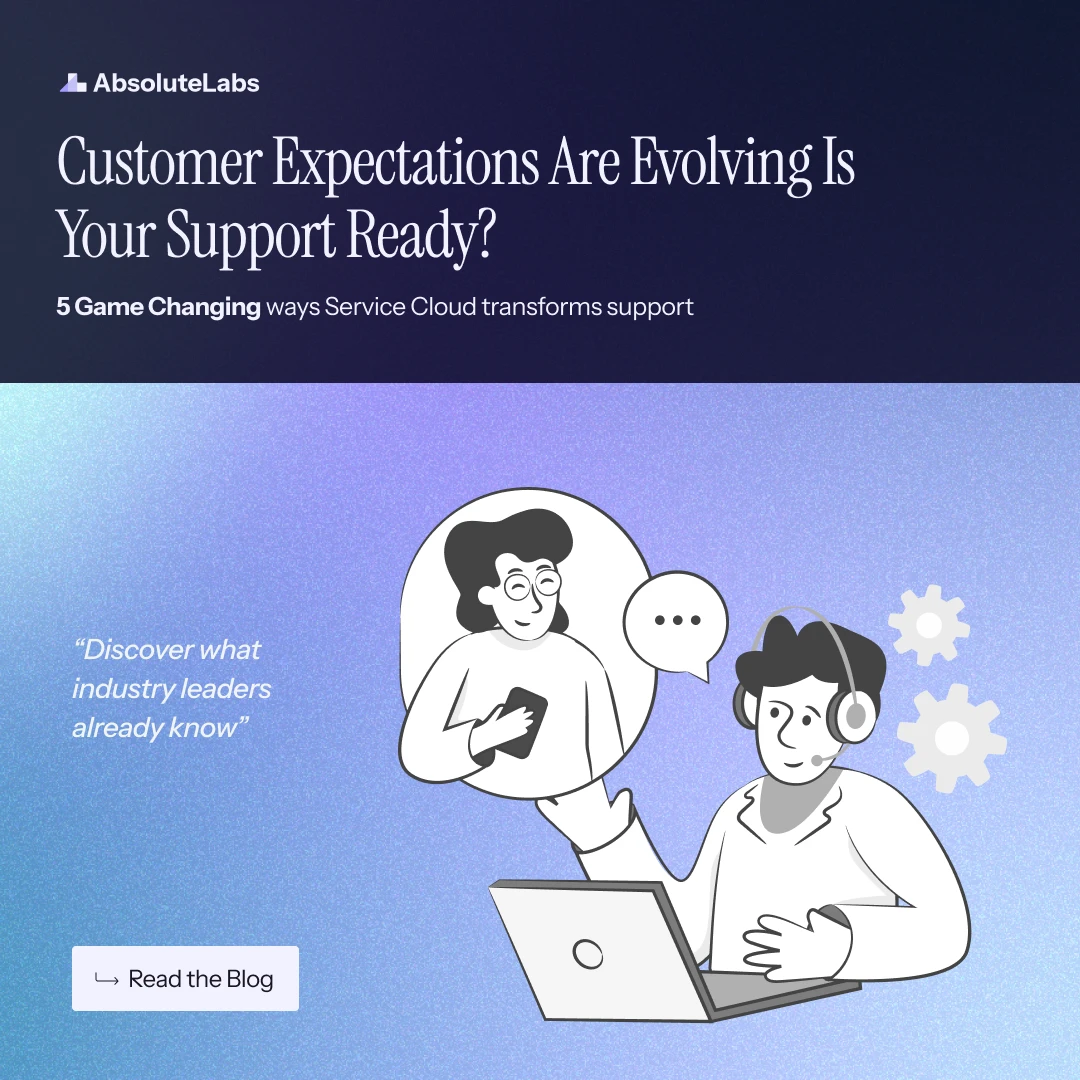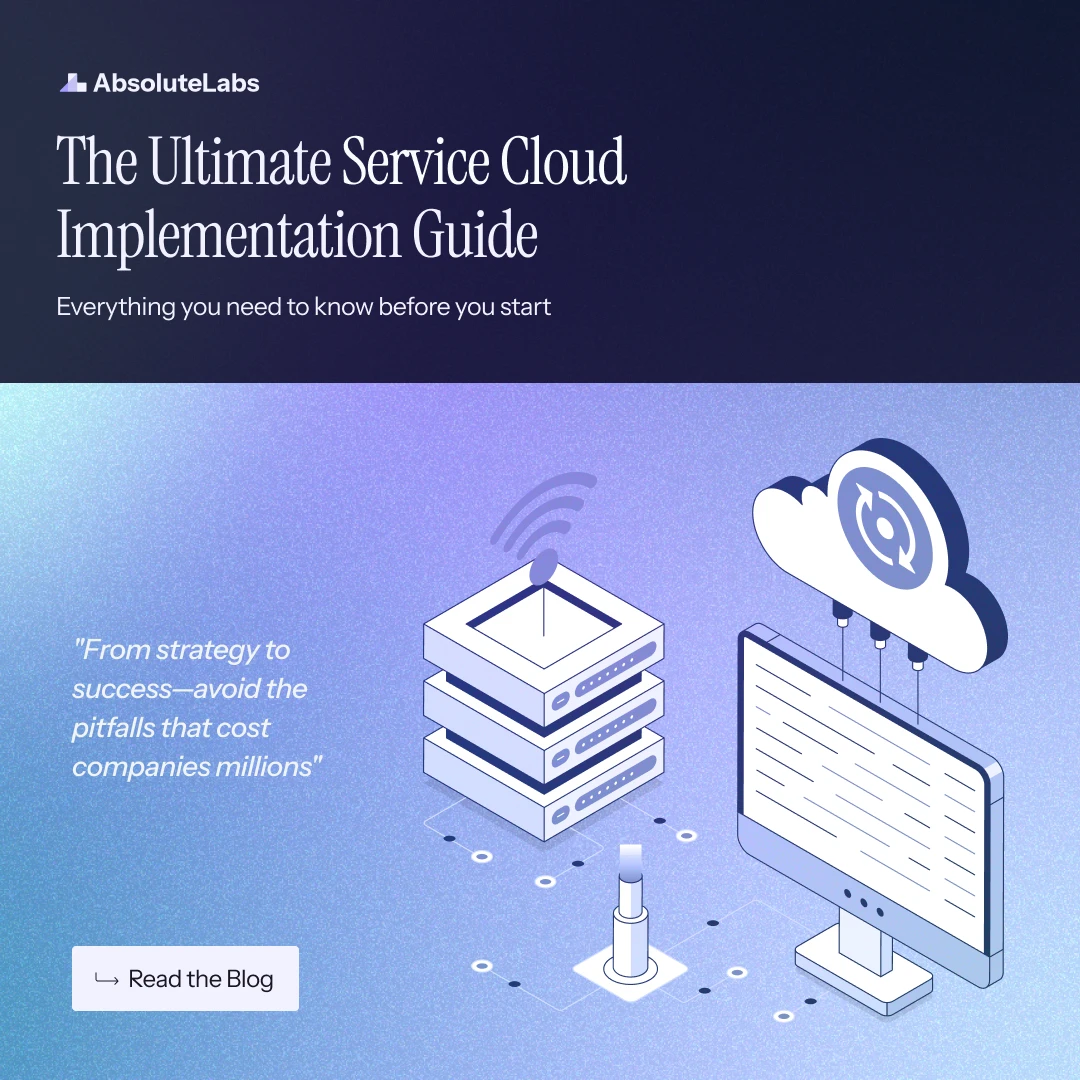Building a Unified Customer Experience Strategy with Salesforce Service Cloud
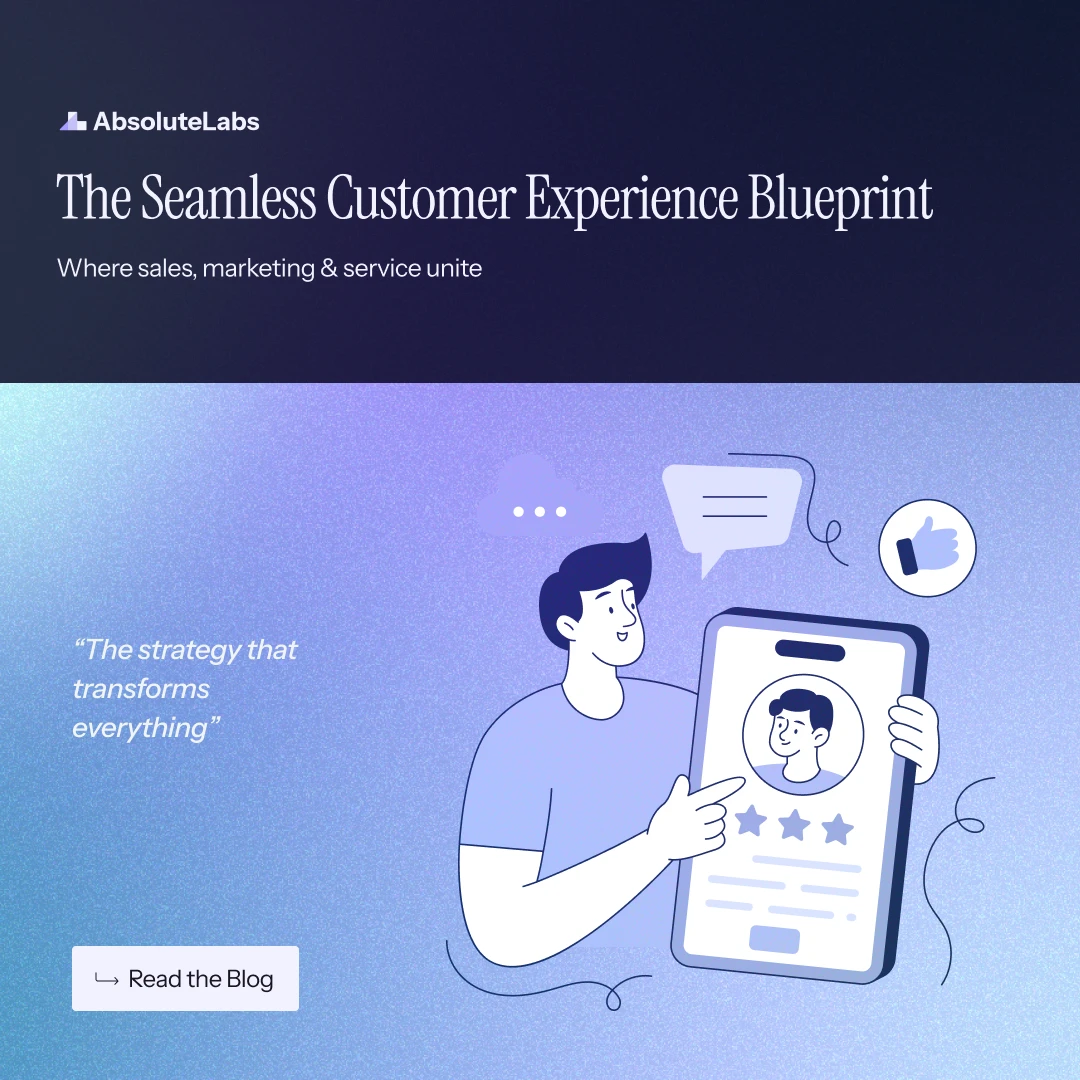
Modern consumers engage with brands through various channels. This includes retail locations, online platforms, smartphone applications and social networking sites. Ensuring these interactions stay consistent and tailored to each person boosts customer satisfaction. It also creates loyalty and helps business grow. Thus it's crucial to provide a unified customer experience (CX).
When you implement a cohesive CX strategy into action the right way, you'll see more satisfied and loyal customers, better business results, faster decision-making, and happier employees.
Salesforce Service Cloud stands out as a comprehensive solution to achieve this unified CX. Built to boost support teams, Service Cloud integrates different customer service tools into a single AI-driven workspace. It allows businesses to handle cases & incidents together, making sure each customer touchpoint is seamless and informed. A case study highlighted a 30% increase in customer satisfaction for a retail company that implemented an omnichannel strategy using Service Cloud.
By using Service Cloud, businesses can provide personalised service on a large scale, cut costs, and boost productivity. This article explores the significance of a unified customer experience and provides insights on how Salesforce Service Cloud serves as a pivotal tool in crafting & implementing a cohesive CX strategy.
Understanding Customer Experience (CX)
Customer Experience (CX) represents the holistic perception customers form about a business, influenced by every interaction across the entire customer lifecycle. It incorporates all touchpoints – from marketing and sales activities to product adoption & usage, and support services. It prioritises uniformity, simplicity, and personalised engagement at each stage.
Customer service is just one component of CX, focused on reactive support. Whereas, customer experience encompasses the complete journey, and actively manages all touchpoints to influence the brand's overall perception.
A unified CX provides seamless, uniform interactions throughout all departments and touchpoints. This coordinated strategy enhances customer satisfaction and loyalty, resulting in improved business outcomes. Moreover, customer-focused firms demonstrate notably faster revenue growth and higher customer retention versus their competitors.
Crafting a Unified CX Strategy
Salesforce Service Cloud is a complete CRM platform (and one of the best custom CRM systems for small business) that boosts customer service operations. It combines customer communications from different sources—like email, phone messaging apps, and chat—into a single interface. This allows agents to handle cases, use knowledge resources, and collaborate.
Key features of Service Cloud include:
- Omni-channel support: Provides consistent customer service on any platform assisting agents in addressing inquiries with ease irrespective of the communication channel.
- AI-powered assistance: Utilises AI to assist agents in offering solutions and automate repetitive processes enabling responses to be quicker and more precise.
- Knowledge base integration: Provides agents with rapid access to a large library of articles and FAQs assisting them in fixing issues quicker.
By combining these attributes, Service Cloud develops an integrated & tailored customer experience. Agents receive a 360-degree view of every client, enabling them to interact in focused manners that delight customers and drive loyalty.
Automated features of the system simplify processes, reducing manual effort and allowing agents to handle more complex issues. Moreover, the integrated knowledge repository makes everyone have the same correct information.
Key Elements of a Unified CX Strategy
1. Centralised Customer Data
A unified customer experience starts with unified data. Salesforce Data Cloud allows companies to bring together information from different sources—CRM system solutions, e-commerce platforms, social media, web analytics—into a single, dynamic customer profile. This consolidation of data makes sure everything's accurate and complete in every interaction.
With this centralized data, agents who use Salesforce Service Console can gain access to a Customer 360 View—full visibility into each customer's background, including support cases, buying behaviour, and past communications. This helps them have relevant and informed conversations via cloud telephony (Salesforce Service Cloud Voice) that cuts down on customers having to repeat themselves, and lays the groundwork to personalised service.
2. Omnichannel Customer Service
Customers want support to be available no matter where they are—whether it’s via phone, email, live chat, social media, or web forms. Salesforce Service Cloud’s omnichannel capabilities ensure that all these interactions funnel into a unified system, maintaining continuity and consistency.
Also intelligent routing features automatically assign questions to the agents who can handle them best. This depends on their skills, if they're free, or what the customer needs. This cuts down on waiting and also improves first-contact resolution rates by connecting customers with the right person right away.
3. Agent Enablement and Productivity Tools
Empowering service agents has a big impact on customer experience. Service Cloud provides seamless integration with a central knowledge hub, so that agents can get easy access to articles, FAQs, and guides while interacting with customers—significantly reducing time to resolution.
AI-powered tools like Einstein Service Replies offer ready-made relevant answers for common questions making communication smoother and easing the load on agents. This makes agents more productive while keeping the tone of communication consistent across the organisation.
Routine tasks—like assigning new cases, escalating unsolved tickets, or updating case statuses—can all be automated with pre-built workflows. This automatic system cuts down on manual work, causes fewer errors, and lets agents focus on the complex, high-value interactions.
4. Personalisation and Proactive Engagement
Customer segmentation in Service Cloud helps companies tailor their support strategies to match individual customer preferences, behaviours, and lifecycle stages. Segments might include top-tier clients, regular buyers, or high-support-need users—each group gets a unique service experience.
Salesforce Einstein analyses customer data in real-time to spot behaviour trends or possible problems—like delayed deliveries or faulty products. This allows businesses to reach out before customers even complain. This level of foresight builds customer trust and loyalty.
5. Customer Feedback Loop
A solid CX strategy needs ongoing customer input. Service Cloud supports the integration of surveys and feedback tools post- interaction, helping companies gather direct input from customers. They can capture feedback across all channels using CSAT, NPS, or custom forms.
Analysing this feedback through dashboards and reports helps companies identify areas for improvement, such as - a slow process or a support channel that's not working well. These findings lead to strategic changes that make the customer journey better and keep raising service standards.
Integration with Other Salesforce Clouds
Integrating Salesforce Service Cloud with Sales Cloud, Marketing Cloud, and Commerce Cloud builds a unified system that boosts customer experience. This integration enhances how customers interact with the company throughout their journey, leading to improved satisfaction and business success.
Sales Cloud Integration
When you link Service Cloud to Sales Cloud, it becomes easy for sales and service teams to share information. This integration ensures both groups can access the latest customer data providing them a complete picture of the customer's experience. Sales representatives can find out about current service problems, while service agents can gain insights into sales interactions. This collaborative approach helps manage customer relationships better.
Marketing Cloud Integration
With the integration of Service Cloud and Marketing Cloud, businesses can use customer service data in a new light for more personalized marketing. For example, specific marketing communications can be crafted based on the relevant service interactions to achieve maximum impact. This synergy results in better customer engagement and also increases the productivity of marketing strategies. Marketing Cloud Connect facilitates this integration allowing users of Sales or Service Cloud to access the advanced engagement features within the integrated platform.
Commerce Cloud Integration
Integrating Service and Commerce Cloud enables a comprehensive and elegant shopping experience by connecting service interactions with commerce data. Service agents can now retrieve commerce-specific information such as order history and customer preferences, allowing them to render the right support. Moreover, businesses are able to monitor relevant customer information and tailor the shopping experience which leads to increased customer satisfaction and loyalty.
Benefits of a Unified CX Strategy
Incorporating Salesforce Cloud Services into your CX strategy can improve customer experience and operational excellence making your organization poised for continuous success in a competitive marketplace.
Implementing a unified CX strategy via Salesforce Service Cloud offers the following benefits:
- Improved Customer Satisfaction: By bringing together support tools on a single, easy-to-use platform, Service Cloud helps agents provide a unified and tailored experience across all touchpoints, resulting in increased customer satisfaction.
- Enhanced Agent Productivity: Through the integration of automation features and AI technologies, Service Cloud improves agent productivity by allowing them to close a greater number of cases in a given time period. Complex issues which require human intervention can now receive the necessary attention.
- Increased Customer Loyalty: Timely resolution and proactive engagement of customer issues through Service Cloud's comprehensive tools improves customer loyalty and encourages repeat business.
- Data-Driven Insights: Service Cloud allows businesses to derive actionable insights from the customer's unilateral & harmonized data, which helps streamline strategies and make informed decisions.
Challenges and Considerations
Implementing a unified customer experience (CX) strategy using Cloud Services Salesforce involves several key challenges that organizations need to address for success, such as:
Change Management
Adopting new technology is usually met with resistance because it is unfamiliar and disrupts existing workflows. Successful change management is necessary to ensure smooth & easy transitions. This includes offering extensive training for different user roles, constant support, and clearly communicating the benefits of the new system to stakeholders. Involving employees early on and resolving their issues can greatly improve adoption and system effectiveness.
Data Quality
The success of Salesforce Cloud Services depends on the integrity of data that it handles. Inconsistent or faulty data may cause erroneous conclusions and poor customer experiences. Cleansing and standardizing data as a priority, either prior to and during the implementation, is imperative. Setting data maintenance protocols in place will keep customer information current, complete, and valid, thus reinforcing the overall CX strategy.
Continuous Optimization
Customer demands and market conditions are constantly changing. Monitoring customer feedback on a regular basis using surveys, support interactions, and social media keeps organisations informed of areas that require improvement. Monitoring this feedback and adjusting strategies as necessary ensures the CX stays aligned to customer needs. Implementing a cycle of constant review and revision helps maintain a responsive and customer-centric approach.
Conclusion
A unified CX strategy directly impacts customer satisfaction and drives business success. Salesforce Cloud Services offer a complete set of tools to bring different customer touchpoints together, delivering an integrated and personalised experience.
By properly managing change, maintaining data quality, and being committed to continuous optimisation, organisations are able to harness the full potential of Service Cloud to heighten their CX initiatives.
At AbsoluteLabs, we focus on deploying Salesforce Service Cloud to develop customised, integrated customer experience strategies that align with your individual business requirements.
Transform your customer experiences and foster enduring success.
Get in touch with us now.




.jpg)

